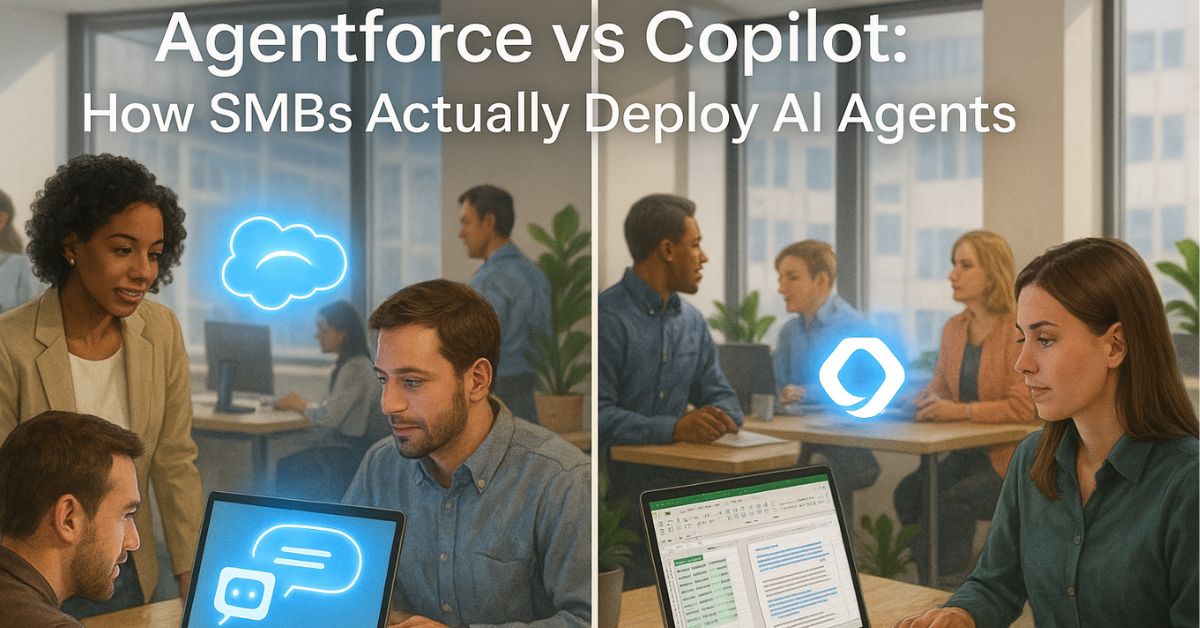
Are you tired of watching your competitors automate their customer service while your team struggles with repetitive tasks? The Agentforce vs Copilot debate isn’t just another tech trend – it’s reshaping how small and medium businesses operate in 2025.
With over 60% of Fortune 500 companies already adopting Microsoft Copilot and Salesforce’s aggressive push into autonomous AI agents, SMBs face a critical decision. But here’s the reality: choosing between these platforms isn’t about picking the “best” technology – it’s about understanding which solution actually fits your business structure, budget, and existing tech stack.
This comprehensive guide cuts through the marketing noise to reveal how real SMBs are deploying AI agents, what challenges they’re facing, and which platform delivers measurable ROI for different business scenarios.
The fundamental distinction between Agentforce vs Copilot lies in their operational philosophy. Agentforce works like a digital worker; Copilot like a digital assistant.
Agentforce operates as an autonomous digital teammate that:
Copilot functions as an intelligent assistant that:
A 150-employee manufacturing company in Ohio deployed Agentforce for inventory management and customer order processing. The results after six months:
The key success factor? They already used Salesforce for CRM, making integration seamless.
A legal consultancy with 25 attorneys chose Microsoft Copilot to handle client communication and scheduling. Their experience:
Their advantage? Heavy reliance on Microsoft Office suite made adoption natural.
Beyond the base licensing fees, SMBs encounter:
Setup and Integration Costs:
Ongoing Expenses:
Initial Deployment:
Monthly Operating Costs:
SMBs already using Salesforce CRM find Agentforce deployment relatively straightforward. Salesforce’s integrations with Slack and Tableau make it valuable for organizations needing strong CRM capabilities and customer interaction analytics.
Common Integration Points:
It’s ideal for companies using Microsoft tools like Teams or SharePoint, with 60% of Fortune 500 companies adopting it. SMBs with Microsoft infrastructure experience smoother Copilot deployments.
Seamless Integration Areas:
According to the survey, the top concern is performance quality more than twice as significant as cost or safety. SMBs report mixed results in real-world deployments.
Strong Performance Areas:
Challenging Scenarios:
Excel At:
Struggle With:
Most successful deployments combine both platforms:
Compliance requirements drive platform selection:
Mobile commerce growth is driving investment in lightweight, cloud-based AI tools for retail and microfinance.
Security-conscious SMBs favor:
While many businesses struggle with AI agent implementation, Sailwayz brings a unique advantage to the Agentforce vs Copilot decision-making process. As a certified Salesforce consulting partner, Sailwayz helps SMBs navigate the complexity of AI agent deployment through their proven methodology.
Strategic Assessment and Planning: Sailwayz’s team of certified consultants doesn’t just implement technology – they analyze your existing business processes to determine whether Agentforce, Copilot, or a hybrid approach delivers the best ROI. Their comprehensive needs assessment identifies workflow bottlenecks and automation opportunities specific to your industry.
Seamless Integration Expertise: With over 50 combined Salesforce certifications, Sailwayz eliminates the technical barriers that often derail AI agent projects. They handle data migration, custom workflow configuration, and ensure your AI agents integrate smoothly with existing CRM processes. This expertise is particularly valuable for SMBs considering Agentforce deployment.
Ongoing Support and Optimization: Unlike generic implementation partners, Sailwayz provides continuous monitoring and optimization of your AI agent performance. They track key metrics, adjust workflows based on real-world usage patterns, and ensure your investment delivers measurable business outcomes. This ongoing partnership approach has helped numerous SMBs achieve 40%+ efficiency improvements in customer service and sales processes.
Change Management Excellence: Sailwayz understands that successful AI agent deployment isn’t just about technology – it’s about people. Their change management methodology helps teams adapt to working alongside AI agents, maximizing adoption rates and minimizing resistance to new workflows.
Both leadership and practitioners identified security concerns as a top challenge they are currently facing in developing and deploying AI.
Agentforce Security Model:
Copilot Security Features:
Healthcare SMBs:
Financial Services:
In 2025 small businesses won’t just be using AI to “generate” a response to their queries. They’ll be leaning on AI agents to actually do something with that information.
Expected Developments:
Agentforce Evolution:
Copilot Advancement:
Ideal Scenarios:
Best Fit For:
Many successful SMBs deploy both platforms strategically:
Week 1-2: Assessment
Week 3-4: Preparation
Month 2: Limited Rollout
Month 3: Optimization
Month 4-6: Full Deployment
Response Time Improvements:
Resolution Accuracy:
Task Automation Success:
Employee Satisfaction:
The Agentforce vs Copilot decision ultimately comes down to your specific business context, existing technology infrastructure, and automation goals. While Agentforce excels in autonomous customer service and CRM-integrated workflows, Copilot shines in productivity enhancement and Microsoft ecosystem integration. The most successful SMB deployments often combine strategic thinking with expert implementation support to maximize their AI agent investment.
Q: What’s the main difference between Agentforce and Copilot for SMBs?
Agentforce operates as an autonomous digital worker that handles complete workflows independently, while Copilot functions as an intelligent assistant that enhances human productivity across Microsoft applications.
Q: Which platform is more cost-effective for small businesses?
Copilot typically has lower upfront costs for Microsoft-centric organizations, while Agentforce may offer better ROI for businesses with existing Salesforce infrastructure and complex customer service needs.
Q: How long does typical deployment take for SMBs?
Most SMB deployments complete within 2-4 months, including setup, training, and optimization phases. Agentforce implementations often take longer due to workflow customization requirements.
Q: Can I use both Agentforce and Copilot together?
Yes, many SMBs successfully deploy both platforms strategically – Agentforce for customer-facing processes and Copilot for internal productivity. However, integration planning is crucial for success.
Q: What are the biggest deployment challenges SMBs face?
Performance quality concerns, security configuration, user adoption resistance, and integration complexity are the top challenges. Working with experienced implementation partners helps overcome these obstacles.
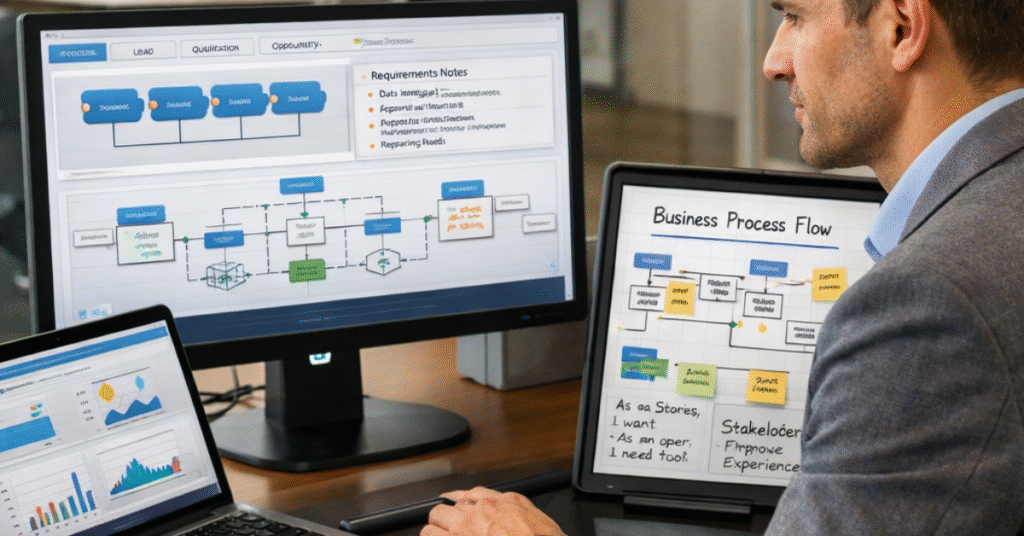
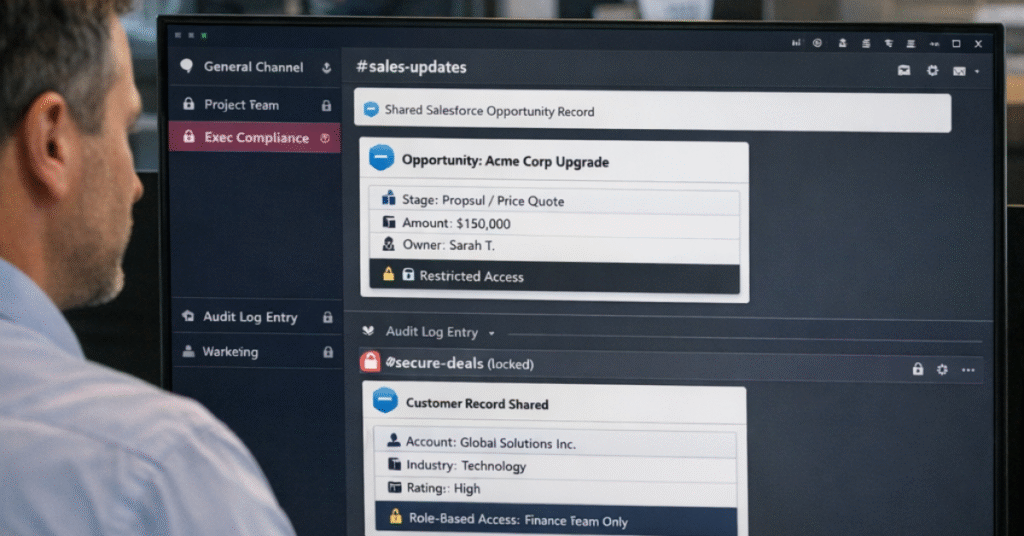
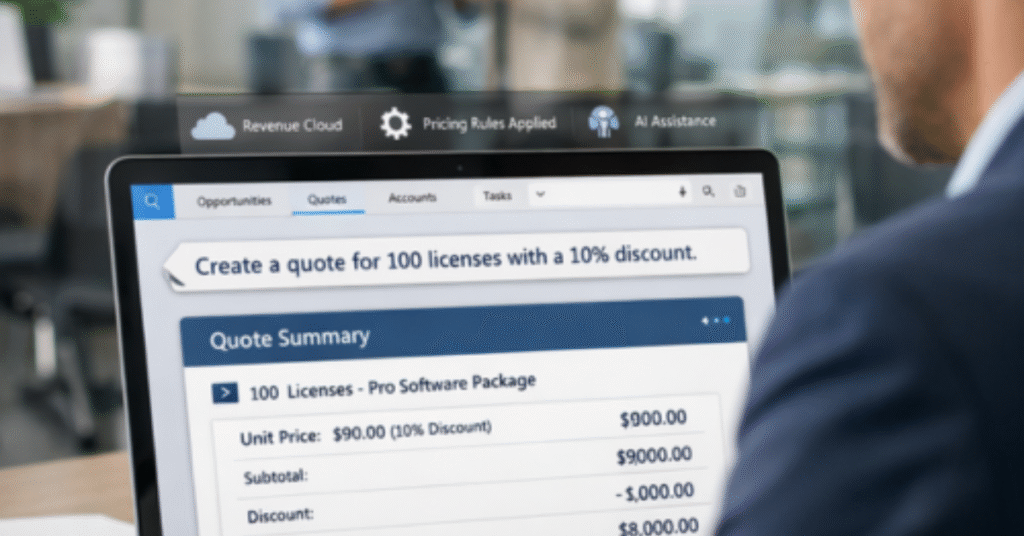



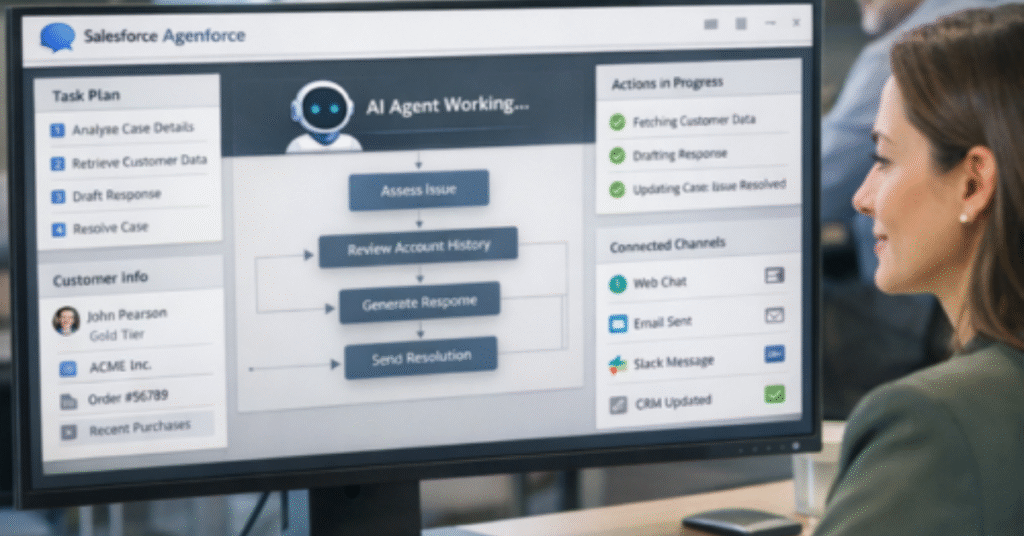
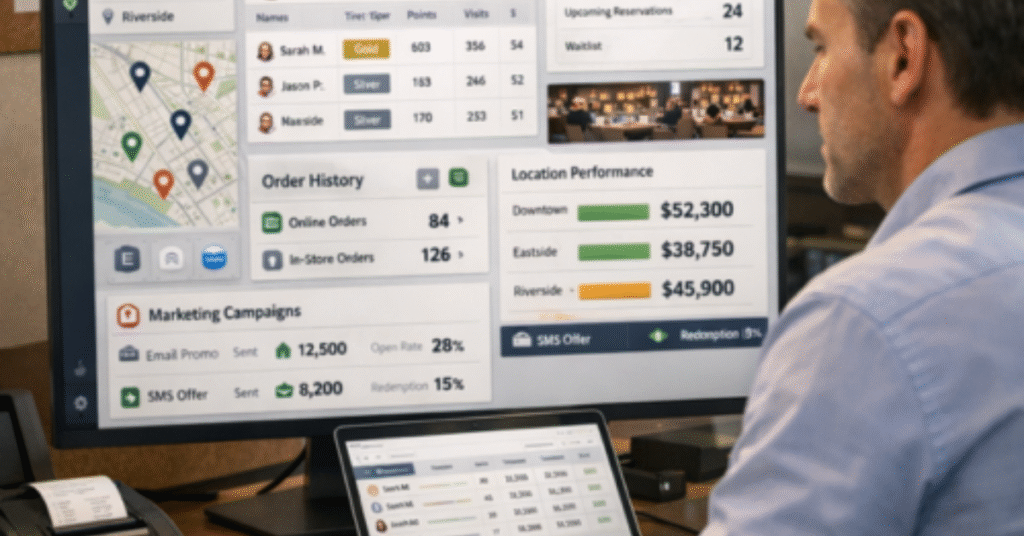
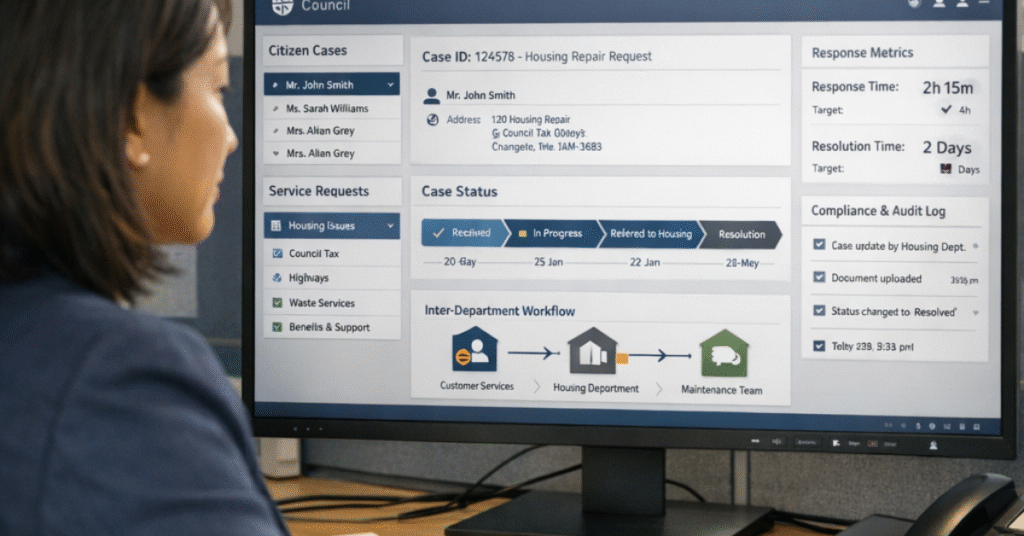


Joshua Eze is the Founder & Salesforce Architect at Sailwayz, a certified Salesforce Consulting Partner based in the UK. With over 6 years of experience leading CRM transformations, he is a certified Application & System Architect passionate about using technology to simplify business processes. Joshua helps companies unlock the full potential of Salesforce with strategic, scalable, and secure solutions.